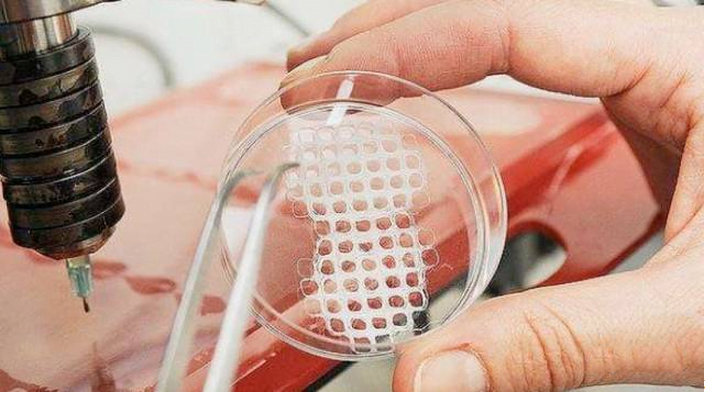The European Union in 2013 banned animal testing for new cosmetic products.This led to the advent of a new and alternative method called 3D Bioprinting. A cost-effective, ethical alternative to the cosmetic industry is the invention of 3D skin tissue.

What is 3D bioprinting?
Three dimensional (3D) bioprinting is the combination of 3D printing and 3D printing–like techniques to combine cells, growth factors, and biomaterials to create biomedical parts that imitate natural tissue characteristics to a great extent.
Generally, 3D bioprinting utilizes the layer-by-layer method to deposit materials known as Bioinks to create tissue-like structures that are later used in medical and tissue engineering fields. Bioprinting covers a broad range of biomaterials like that of tissues and organs that are used to research drugs and pills.
Latest innovations enable bioprinting of cells or extracellular matrix deposited into a 3D gel layer by layer to produce the desired tissue or organ.In addition, 3D bioprinting has begun to incorporate the printing of scaffolds. These scaffolds can be used to regenerate joints and ligaments.
The first patent related to this technology was filed in the United States in 2003 and granted in 2006.
A Bengaluru-based startup, Next Big Innovation Lab, set up by four young entrepreneurs, has brought this unique 3D bioprinting technology to India by developing 3D skin tissue which will address the growing R&D needs of the healthcare sector in the country, as reported by media.
About the startup
The startup was founded in May 2016.
“Our 3D bioprinted skin tissues (Innoskin) developed using our proprietary technology will allow cosmetic manufacturers to work on formula development that is in line with international regulations and testing guidelines. Hence, animal testing by these companies will be virtually eliminated,”
said Pooja Venkatesh, co-founder, Next Big Innovation Lab.
The cosmetic companies can make use of 3D skin tissues, which is bioprinted using different skin types from different parts of the human body, to test a range of their products. User-specific skin cells can also be printed so that people can create cosmetics custom-made for their skin types and needs.
“With personalized medicine gaining a lot of momentum, 3D skin tissues can be used as models to study various skin ailments, to effectively treat skin scars, and for medical students to practice suturing of wounds,”
Venkatesh explained.
Competition and funding
Although a number of companies are operating in the 3D bioprinting space on different tissue types, Next Big Innovation Lab is the only startup in India providing 3D bioprinted skin.
“Our focus is on creating local and global business partnerships for enhancing product adoption in cosmetic, clinical and pharmaceutical R&D. We have already collaborated with pioneers in the field and are planning a global expansion to drive sales and adoption,”
she said.
This company is supported by the Karnataka state, central government and Tata Trusts to the tune of Rs 1.25 crore. Currently incubated at Bengaluru Bioinnovation Centre, the startup is recognised under the Startup India and Startup Karnataka Programmes.
They have also been invited by the German Tech Centre to set up an office in Germany.
Plans for future
The startup intends to foster pharmaceutical R&D sector along with working towards a visionary solution.
“ As opposed to the current 2D models being used in preclinical R&D, our 3D bioprinted tissue is an opportunity to test research molecules on cells in a 3D environment, mimicking the cells natural environment,”
Venkatesh added.
Talking about their strength, Venkatesh said,
“Our core strength is the technology we developed in-house and our engineering expertise. We have developed a 3D bioprinter from scratch, this will help us fast track our R&D and develop consistent products. We are also building customised 3D bioprinters for various clients.”
The startup intends to use its Innoskin as cost effective transplants for burn victims, wound healing, and to provide personalized treatment to people suffering from severe skin ailments. However, a lack of understanding about the new technology in the country is proving to be a hindrance for the firm. It has chosen to work closely with the government to understand the regulatory approvals required and, also help define these compliances.
Also Read: A Man Who Left His Everything To Change Lives For Better: Inspiring Prof. Satya Mahapatra!









